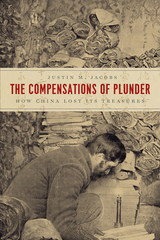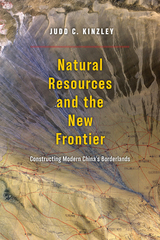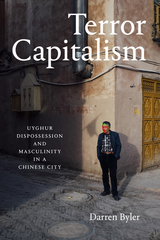

The Uyghurs, a Turkic group, account for half the population of the Xinjiang region in northwestern China. This ethnography presents a thick description of life in the Uyghur suburbs of Yining, a city near the border with Kazakhstan, and situates that account in a broader examination of Uyghur culture. Its four sections explore topics ranging from family life to market trading, from informal socializing to forms of religious devotion. Uniting these topics are an emphasis on the role folklore and personal narrative play in helping individuals situate themselves in and create communities and social groups, and a focus on how men’s concerns to advance themselves in an agonistic world of status competition shape social life in Uyghur communities.
The narrative is framed around the terms identity, community, and masculinity. As the author shows, Yining’s Uyghurs express a set of individual and collective identities organized around place, gender, family relations, friendships, occupation, and religious practice. In virtually every aspect of their daily lives, individuals and families are drawn into dense and overlapping networks of social relationships, united by a shared engagement with the place of men’s status competition within daily life in the community.

China’s westernmost province of Xinjiang has experienced escalating cycles of violence, interethnic strife, and state repression since the 1990s. In their search for the roots of these growing tensions, scholars have tended to focus on ethnic clashes and political disputes. In Natural Resources and the New Frontier, historian Judd C. Kinzley takes a different approach—one that works from the ground up to explore the infrastructural and material foundation of state power in the region.
As Kinzley argues, Xinjiang’s role in producing various natural resources for regional powers has been an important but largely overlooked factor in fueling unrest. He carefully traces the buildup to this unstable situation over the course of the twentieth century by focusing on the shifting priorities of Chinese, Soviet, and provincial officials regarding the production of various resources, including gold, furs, and oil among others. Through his archival work, Kinzley offers a new way of viewing Xinjiang that will shape the conversation about this important region and offer a model for understanding the development of other frontier zones in China as well as across the global south.

With Oil and Water, anthropologist Tom Cliff offers the first ethnographic study of Han in Xinjiang, using in-depth vignettes, oral histories, and more than fifty original photographs to explore how and why they became the people they are now. By shifting focus to the lived experience of ordinary Han settlers, Oil and Water provides an entirely new perspective on Chinese nation building in the twenty-first century and demonstrates the vital role that Xinjiang Han play in national politics—not simply as Beijing’s pawns, but as individuals pursuing their own survival and dreams on the frontier.

READERS
Browse our collection.
PUBLISHERS
See BiblioVault's publisher services.
STUDENT SERVICES
Files for college accessibility offices.
UChicago Accessibility Resources
home | accessibility | search | about | contact us
BiblioVault ® 2001 - 2024
The University of Chicago Press









